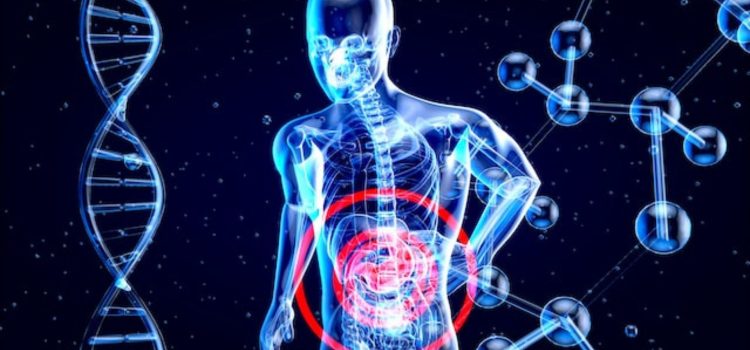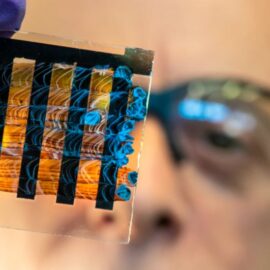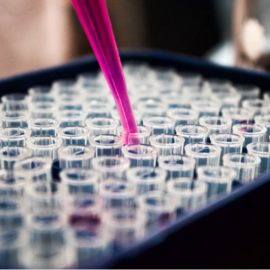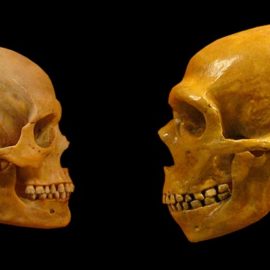

This article is an excerpt from the Shortform book guide to "Ageless" by Andrew Steele. Shortform has the world's best summaries and analyses of books you should be reading.
Like this article? Sign up for a free trial here.
What are the effects of aging on body systems? How do stem cells affect your body’s health?
When body processes become less effective with age, the changes can wreak havoc. In Ageless, Andrew Steels looks at three systems where this loss of effectiveness does a lot of harm: your stem cells, your immune system, and your microbiome.
Let’s take a better look at these effects of aging on the human body.
1. Stem Cells Die or Become Less Functional
As you age, many types of cells in your body die or become less effective. Steele writes that this is particularly problematic with stem cells, and their deterioration is one of the biggest effects of aging on body systems. Most of your cells are specialized, and when they divide, they create two of the same kind of cell. But stem cells can create different types of cells, which enables them to replenish a variety of cells around your body. When stem cells become less effective, your bones become more fragile and your senses less sharp. Stem cell loss also plays a role in diabetes, certain kinds of blindness, and Parkinson’s.
The potential fix: Steele explains that transplanting stem cells—a process called a bone marrow transplant or a hematopoietic stem cell (HSC) transplant—could replenish your supply of these versatile cells. Scientists have also learned to generate induced pluripotent stem cells (iPSCs), enabling mature cells (like your skin cells or blood cells) to turn into any cell type.
| Pushing the Ball Back Up the Hill In his 1957 book The Strategy of the Genes, developmental biologist Conrad Hal Waddington compares a stem cell to a ball rolling down a hill, its destination determined by the ridges and valleys—the genes—it encounters on the way down. Because they can reach any destination at the bottom of the hill, stem cells could treat aging by repairing any cell or tissue. However, in practice, this is complex, and few treatments are ready. The only stem cell therapy currently approved for patients involves transplanting blood-forming stem cells from blood or bone marrow in people with blood cancers to replenish their supply of healthy blood cells. The generation of iPSCs, another possibility Steele mentions, is also complex. It involves pushing the ball back up the hill and then letting it roll back down again. By introducing four genes into a mature cell, scientists can turn it into a pluripotent stem cell. This kind of stem cell usually only exists early in your development, when you’re just an embryo. Scientists hope to use iPSCs to treat age-related diseases, restore damaged tissues, and grow new organs. The potential of these iPSCs may be limited, however, because they retain a memory of the kind of cell they were before, which restricts their effectiveness. So experts are working on ways to make iPSCs that are more like embryonic stem cells, without a memory—which might yield anti-aging treatments that use stem cells. |
2. Your Immune System Becomes Less Capable
Your immune system, which protects you from infection, is another system that becomes less functional as you age, leading to a variety of harmful repercussions. Steele explains that this decline affects many components of your immune system.
1) Your thymus deteriorates. Your thymus is an organ that produces T cells, the white blood cells you need to fight infections. It begins to decline in volume and function when you’re a child and halves in size every 15 years.
The potential fix: Sterilization stops the thymus’s decline, but Steele points out that this isn’t a practical treatment. Growth hormones or gene therapy could rejuvenate the thymus, and scientists think it might be possible to use stem cells to grow a new thymus.
2) Cells that remember past infections impair your body’s ability to fight new infections. Steele explains that memory T cells and B cells become specialized to an infection. These cells—such as the ones specialized to fighting a common virus called cytomegalovirus (CMV)—remain in your immune system for years afterward. As you age, you have fewer T cells that aren’t specialized. The ones that are specialized use up resources and cause your immune system to fixate on old infections, making it less effective against new ones.
The potential fix: Steele writes that scientists could eliminate these single-minded cells via processes that kill senescent cells. Other ideas include targeting cells that have DNA damage or extending the telomeres of aging memory T cells and B cells.
3) Your immune system gets less efficient at finding and destroying tumors, which is why cancer is more prevalent in older people.
The potential fix: Steele explains that an HSC transplant could reboot your entire immune system and boost its performance at destroying cancerous cells—but wiping out and restarting the immune system poses a lot of risks.
3. Your Microbiome Deteriorates
Finally, your microbiome—the unique array of bacteria, fungi, and viruses in your skin, mouth, and gut—is another complex system that falls out of balance as you age. Steele explains that an imbalance among the organisms in your microbiome leads to chronic inflammation throughout your body, damaging tissues and accelerating age-related changes.
The potential fix: Steele explains that probiotics (which contain live microorganisms) or prebiotics (which fuel beneficial microorganisms) rebalance the microbiome in favor of beneficial microbes. Probiotics and prebiotics can be combined into treatments called synbiotics. Or, a microbiome transplant, using purified fecal matter from a donor, can rebalance the microbiome.
| Cultivating a Healthy Forest Some scientists describe your microbiome as an ecological community within the larger ecosystem of your body—like a local forest with its own unique population of trees, birds, animals, and insects. Your microbiome contains trillions of microbes of thousands of different species. Some are helpful and some are harmful, and it’s important to maintain a balance. Experts say that reduced microbiome diversity correlates with frailty in older people. They’ve also found that, in middle age, a healthy microbiome gets increasingly unique, with a balance of microbes specific to you. Some experts assert that the more the composition of your microbiome changes as you age, the better it’s adjusted to your body and environment. Steele contends that probiotics and prebiotics (and synbiotics, which combine the two) can benefit your microbiome’s ecological community. But some experts say that the evidence, particularly on prebiotics, is limited. Some physicians say that the average person doesn’t need to take prebiotics and would benefit more from eating a diet that’s rich in fiber, with generous helpings of vegetables and fruits. Additionally, some experts say that the research hasn’t shown probiotics to confer any benefits for people who are already healthy. |

———End of Preview———
Like what you just read? Read the rest of the world's best book summary and analysis of Andrew Steele's "Ageless" at Shortform.
Here's what you'll find in our full Ageless summary:
- The processes that make us grow sicker and slower as we age
- How future treatments may treat—and even cure—aging
- Proven steps you can take right now to slow your aging process






